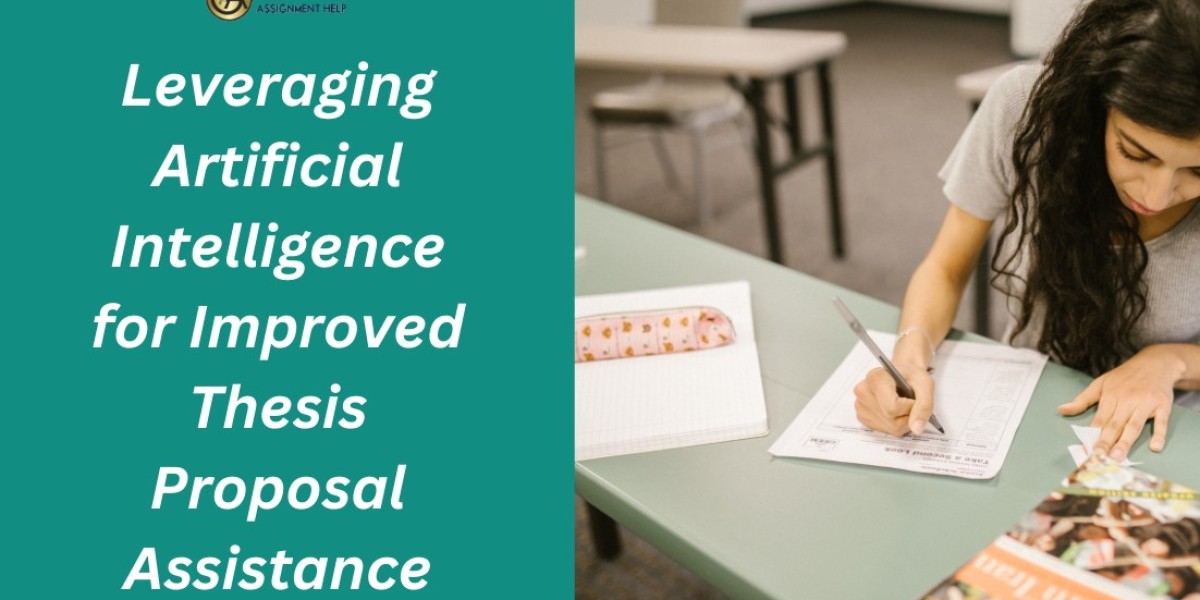Introduction:
Thesis proposals are critical milestones in the academic journey of graduate students. The proposal sets the stage for the entire research project, outlining the research question, objectives, methodology, and expected outcomes. However, crafting a well-structured and impactful thesis proposal can be a daunting task, requiring extensive research, critical thinking, and writing skills. In recent years, artificial intelligence (AI) has made significant advancements, offering potential solutions to enhance the process of thesis proposal preparation. This article explores the benefits of leveraging AI to assist students in developing compelling and effective thesis proposals.
- Literature Review and Topic Selection:
One of the initial challenges in developing a thesis proposal help is conducting a comprehensive literature review to identify gaps in existing research. AI-powered algorithms can aid in this process by analyzing vast amounts of scholarly articles, research papers, and other relevant content. AI-driven literature review tools can extract key information, summarize relevant findings, and provide insights into potential research topics that align with the student's interests and expertise.
- Research Question Formulation:
Formulating a well-defined research question is the cornerstone of any successful thesis proposal. AI-powered natural language processing (NLP) tools can assist students in refining their research questions by analyzing the clarity and specificity of the question. These tools can provide suggestions for improvements, ensuring the question is focused, answerable, and relevant to the chosen field of study.
- Proposal Structure and Organization:
An effective thesis proposal should be logically structured and well-organized. AI-powered writing assistants can analyze the flow of the proposal, making suggestions for better organization and coherence. These tools can also assist in identifying and addressing potential gaps in the proposal, helping students to create a cohesive narrative that leads the reader from the introduction to the research methodology and expected outcomes.
- Language Enhancement:
Language proficiency plays a crucial role in conveying ideas clearly and persuasively in a thesis proposal. AI language models can offer grammar and style suggestions, enabling students to improve the overall readability and professionalism of their writing. Additionally, these tools can help non-native English speakers to refine their language and reduce language-related barriers that may hinder their proposal's effectiveness.
- Plagiarism Detection:
Maintaining academic integrity is essential when crafting a thesis proposal. AI-powered plagiarism detection tools can compare the student's work with a vast database of existing publications, ensuring originality and identifying any unintentional instances of plagiarism. By using such tools, students can confidently present their unique ideas while avoiding potential academic misconduct.
- Data Analysis and Methodology:
In scientific research, choosing the right methodology and data analysis techniques is crucial for producing reliable results. AI can assist students in determining the most appropriate research methods based on their research questions and the type of data they aim to collect. Moreover, AI algorithms can help in statistical analysis and interpretation, streamlining the process of data processing and presentation.
- Proposal Evaluation:
As students work on their thesis proposals, getting feedback from peers or mentors is essential. AI-powered peer review tools can assist in providing constructive feedback, simulating the input of multiple reviewers with different perspectives. This iterative process can refine the proposal before its submission, enhancing its overall quality and increasing the likelihood of approval.
- Time Management:
Completing a thesis proposal requires effective time management. AI tools can analyze past data and patterns to create personalized schedules, reminding students of deadlines and milestones. By assisting in time management, AI can reduce stress and improve the overall efficiency of the proposal writing process.
Conclusion:
The utilization of artificial intelligence in the development of thesis proposals presents a promising opportunity to enhance the quality and efficiency of the proposal writing process. AI-powered tools can aid students in conducting literature reviews, refining research questions, organizing their proposals, enhancing language proficiency, detecting plagiarism, choosing appropriate methodologies, and managing time effectively. By leveraging AI, students can confidently create well-structured and persuasive proposals, setting the stage for successful research endeavors. However, it is essential to acknowledge that AI is a supportive tool and not a replacement for critical thinking and originality, which remain the core elements of a successful thesis proposal. As AI continues to advance, integrating it into the academic writing process can empower students to reach new heights in their research pursuits.








